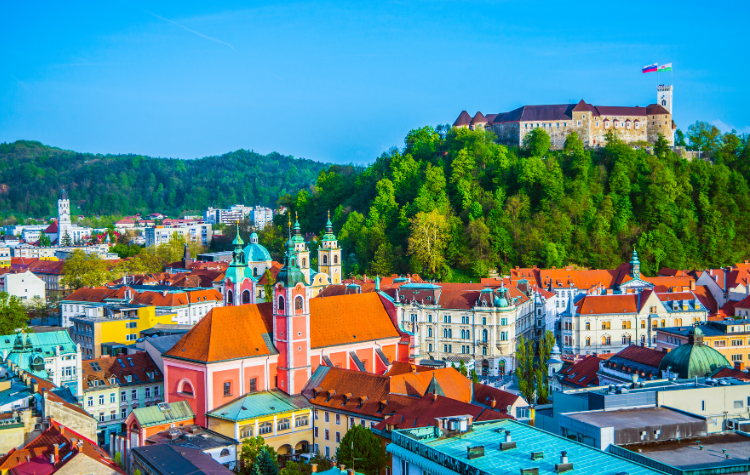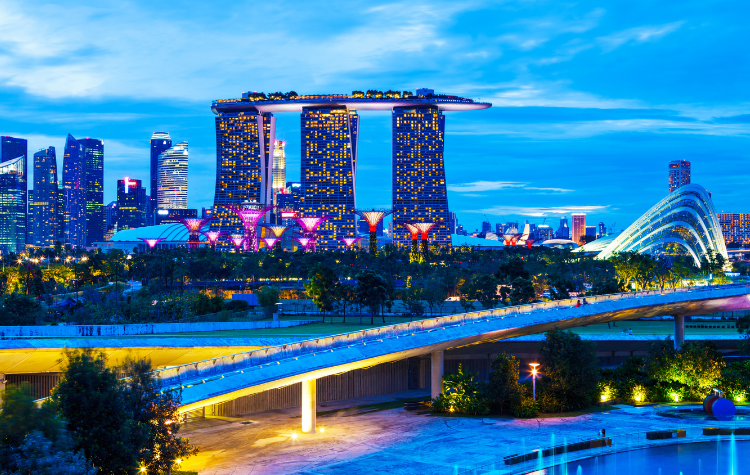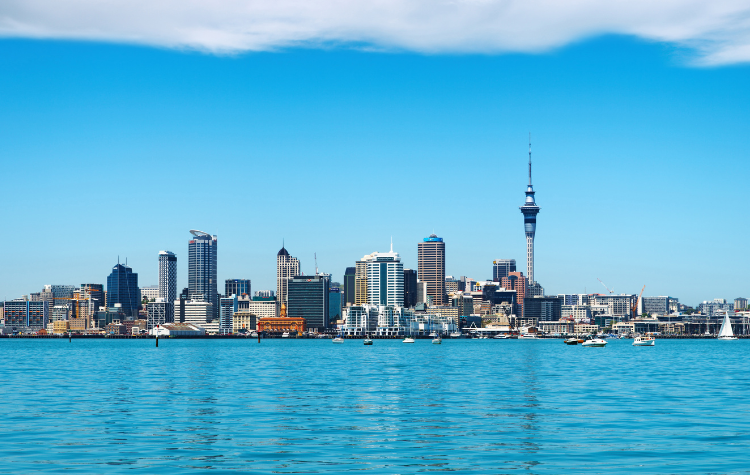When choosing an MBA or business master’s, many candidates prefer to study abroad to take advantage of new experiences and career opportunities. According to the latest GMAC Prospective Student Survey, 77% of Indian applicants and 83% of those from China favor an international study experience.
Choosing to study abroad is a significant decision for anyone, and safety is understandably a top priority for students and parents alike. For prospective MBA and business master’s students, finding a location that offers not only excellent educational opportunities but is also a secure environment can be a challenge.
The recently published Global Peace Index (GPI) ranks the world’s safest countries based on various indicators such as levels of violence, political stability, and societal safety.
We've gathered study abroad options in the top 10 safest countries in 2025, according to the GPI, to help your research.
The 10 safest countries in 2025
10. Finland
Finland is famous for its low crime rates, stable governance, and strong sense of community, as much as its lakes and forests. The country is a leader in technology, education, and clean energy sectors, which make it attractive to business students. Aalto University School of Business is well-regarded for its strong industry ties, and graduates often find employment in the country’s thriving tech scene and sustainable industries.
9. Slovenia
Slovenia has a low crime rate, a stable political environment, and a welcoming attitude toward international students. It’s home to some very highly regarded business schools such as the University of Ljubljana, IEDC–Bled School of Management, IBS International Business School Ljubljana, GEA College, and DOBA Business School, all of which offer English-language MBA and international business programs. Compared with other Western European destinations, living and studying in the country is budget-friendly, with manageable tuition and living expenses, inexpensive public transport, and affordable food.

©Jcca/Canva Pro
8. Denmark
Denmark’s peacefulness is reflected in its robust social welfare system and low crime rate. Copenhagen is often ranked as one of the happiest cities in the world, too. The country excels in green technology, pharmaceuticals, and design industries, and Copenhagen Business School is known for its international outlook and strong employer connections. Its graduates enjoy high employment rates and good opportunities in innovative industries, supported by the country’s emphasis on sustainability and dedication to work-life balance.
7. Portugal
Portugal regularly ranks among the top 10 on the Global Peace Index, with a supportive legal environment and very good emergency and healthcare services. It’s known as a friendly and supportive place for students. Business schools include Católica Lisbon School of Business & Economics, AESE Business School, and Nova School of Business and Economics, all of which have an excellent global reputation.
6. Singapore
Singapore is known for its strict law enforcement and low crime rates. It is also a global financial hub with strong industries in banking, technology, and trade. Business schools such as Nanyang Business School and Singapore Management University offer well-respected MBA programs, and their graduates benefit from Singapore’s vibrant job market and its position as a gateway to Asia’s booming economies.

©Leung Cho Pan/Canva Pro
5. Switzerland
Switzerland is well known worldwide for its safety, political neutrality, and high quality of life. It is a global centre for finance, pharmaceuticals, and precision engineering. Top business schools include IMD and the University of St. Gallen. Swiss business graduates can benefit from strong global links, often finding lucrative careers in banking, consulting, and multinational organisations.
Rorie Pyle from the USA is 23 and studying for a master's at EHL Hospitality Business School in Switzerland. She says, “Safety was not a major factor when deciding where to go for my graduate degree. However, moving to Switzerland gave my family a great degree of peace of mind, since this was my first time moving abroad. Once I moved to Switzerland, its reputation for safety proved to have merit. Before moving into on-campus accommodation, I stayed in a hotel in town near the train station. When I asked the receptionist about the town’s safety as a solo female traveler, she stated that I ‘could walk to the bus stop without any clothes on and nobody would bat an eyelid’.”
4. Austria
Austria has a robust economy with strengths in manufacturing, finance, and services.
Leading business schools include WU Vienna University of Economics and Business and the University of Vienna. The country’s strong ties to European markets and a high standard of living mean there are lots of opportunities in multinational corporations and startups.
Twenty-nine-year-old Natia Jokhadze from Georgia is currently studying for an Executive MBA in Strategic Sales and Marketing at WU Executive Academy in Vienna. Her company has offices in several cities, including Tbilisi, where she’s from, as well as London, Paris, and Vienna, and she was accepted into programs in each. However, she says, “Vienna felt like the right fit. It’s safe, clean, and somehow reminded me of home. The city has a calm energy, which appealed to me.” Safety was a key factor in her decision: “Compared to other big cities, Vienna felt peaceful and secure. It’s not chaotic, and I rarely see things like homelessness or stray animals, which adds to the sense of order and care. It’s a place where you can really breathe.”
3. New Zealand
New Zealand consistently scores high on the GPI for its peaceful society and welcoming culture, not to mention its stunning landscape. It has a robust economy with key sectors in agriculture, technology, and tourism. The University of Auckland Business School and Victoria University of Wellington offer business courses with a focus on innovation and sustainability, and MBA graduates often find employment in diverse sectors, supported by the country’s emphasis on work-life balance and quality of life.

©DimtryPichugin/Canva Pro
2. Ireland
Ireland is an increasingly key hub for technology, pharmaceuticals, and finance, attracting many global companies. It also has low crime rates, making it an appealing destination for international students. Trinity College Dublin and University College Dublin offer prestigious business programs, and MBA and business master’s graduates gain access to Ireland’s thriving job market, particularly in tech and finance.
Thi Van Pham is studying for a master’s degree at Trinity Business School and has lived there since September 2024. She says that she chose Ireland for four key reasons: “It’s an English-speaking country, it has good career opportunities after graduation, a good work-life balance culture, and amazing nature. Now she’s here, safety is a huge appeal: “Irish people are so kind and nice.”
1. Iceland
Iceland is currently the safest country globally, with very low crime rates and a strong sense of community. Meals out might be expensive, but its thriving economy is driven by tourism, renewable energy, and fisheries. Reykjavik University offers respected business programs, and its graduates enjoy a high quality of life and opportunities in emerging sectors, supported by Iceland’s innovative and sustainable economic model.


